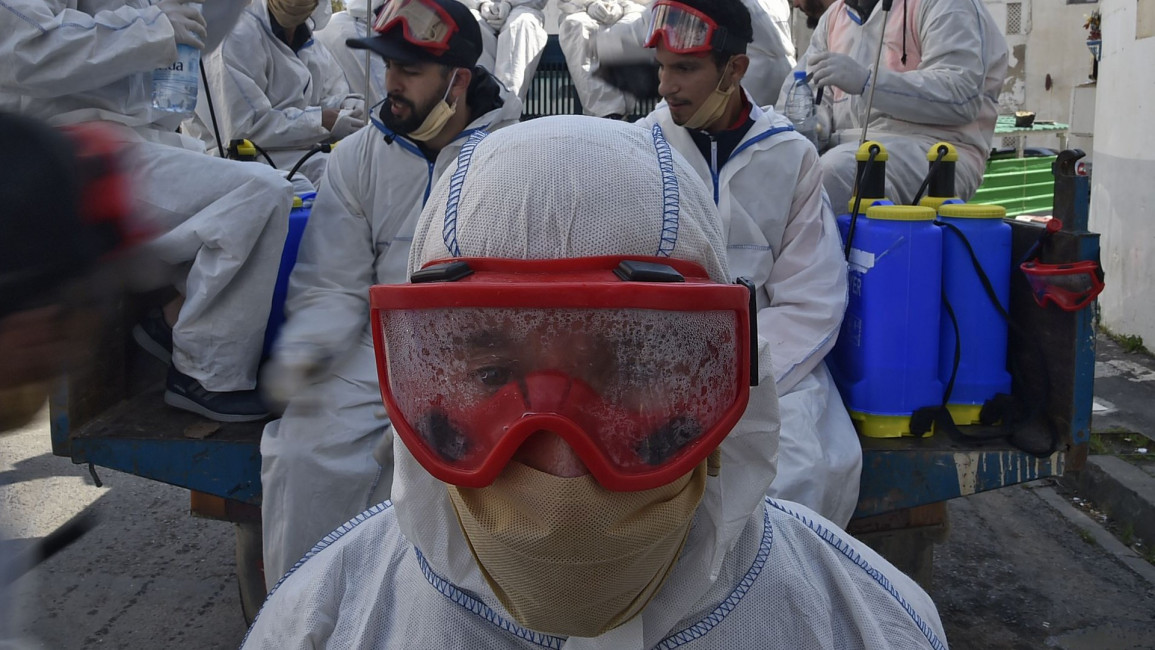Algeria extends lockdown in 44 provinces amid coronavirus pandemic
Algeria extends lockdown in 44 provinces amid coronavirus pandemic
Algeria has extended lockdown measures for 15 days in most of the country's provinces as the Covid-19 pandemic continues.
2 min read
Algeria is still suffering from the coronavirus pandemic [Getty]
Algeria has extended a lockdown throughout most of the country in an effort to prevent the spread of coronavirus.
The government announced in a statement that a partial lockdown in 44 of the country's 48 provinces until 15 June. The lockdown was originally due to end on 1 June.
The lockdown will be in force between 7pm and 7am local time in 28 provinces, while in 16 provinces, it will be imposed between 5pm and 7am local time, the statement added.
The lockdown was lifted in the remaining four provinces.
The country is still reeling from the pandemic, and so far 630 people have died from Covid-19, while the number of cases stands at 8,997.
Some 5,277 people have recovered from coronavirus.
Algerian authorities have been accused of using the coronavirus pandemic to crack down on political opposition, exploiting the fact that protesters cannot gather in the streets to arrest political activists from the Hirak movement which brought down former President Bouteflika in 2019 and sentence them to long jail terms.
Earlier this week Algeria announced it intends to use the drug hydroxychloroquine against the novel coronavirus, a member of its scientific committee said, despite the World Health Organisation (WHO).
"We've treated thousands of cases with this medicine, very successfully so far," said Mohamed Bekkat, a member of the scientific committee on the North African country's Covid-19 outbreak.
|
"We haven't noted any undesirable reactions," he told AFP.
Algeria decided in late March to treat patients infected with the Covid-19 illness with a combination of hydroxychloroquine and azithromycin, an antibiotic.
"For confirmed cases, we use hydroxychloroquine and azithromycin. Then there is a whole protocol for serious cases," a health ministry said.
Thousands of people infected or suspected of being infected with the virus have received such treatments, said Dr. Djamel Fourar, the scientific committee's spokesman.
The World Health Organisation said on Monday it had temporarily suspended clinical trials of hydroxychloroquine as a potential treatment for coronavirus, following a study in The Lancet.
That study looked at records from hundreds of hospitals, comparing a control group with patients treated with hydroxychloroquine or chloroquine, either alone or in combination with antibiotics.
At the end of the study, of those treated with hydroxychloroquine or chloroquine alone, 18 percent and 16.4 percent respectively had died, compared with nine percent in the control group.



